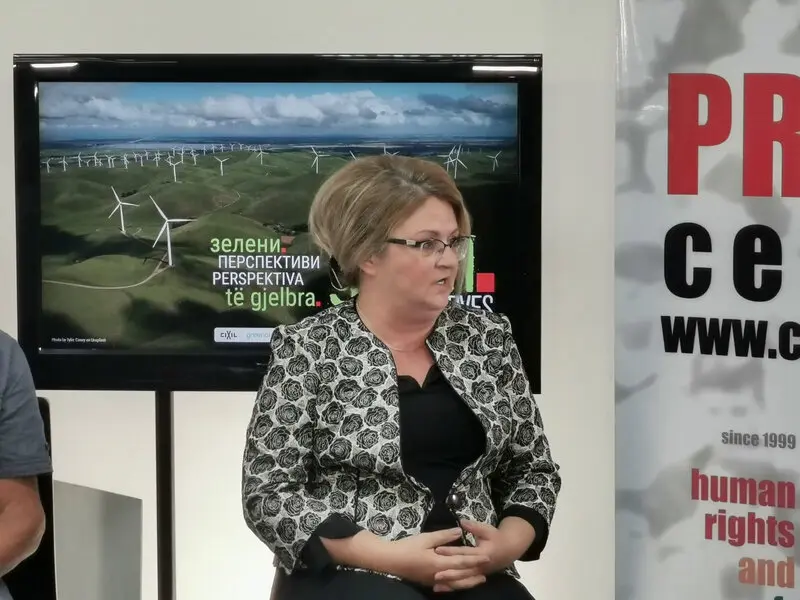The Ministry of Environment and Physical Planning adopted six legal acts in the area of waste management that gained the support of the majority of MPs in parliament, and with them we are introducing a new process for a circular economy, or making use of waste as a raw material, highlighted Deputy Minister for Environment and Physical Planning Hristina Odzaklieska at today’s panel discussion on the topic “Waste, waste regulation, situations and solutions”, organized by CIVIL within the project “Green Reading Book”, in cooperation with the Heinrich Böll Foundation, reports MIA.
– It concerns five regional landfills, since for the Northeastern and Eastern region we are already in a more advanced phase, funds from the IPA-2 programme have been provided there. This loan concerns the construction of regional landfills in the Southeastern, Southwestern, Pelagonija, Vardar and the Polog regions, said Odzaklieska.
She expressed hope that they will receive support from the municipalities, because, as she outlined, there has to be close cooperation between the central and local government in relation to the construction of the regional landfills.
Georgi Klincarevski and Aneta Minceva from the Department for Environment Protection in Shuto Orizari also took part in the panel discussion.
Minceva informed that according to the waste management plan, the Council of the Municipality of Shuto Orizari, at the proposal of the Mayor, adopted a waste management program.
– About 9.500 tons are communal waste. The highest percentage here is biodegradable waste or organic waste, which is somewhat over 65 percent, while waste from paper, cardboard and plastic is already in the second and third place, said Minceva.

Klincarevska said that the situation in the Municipality of Shuto Orizari is not a problem in regards to small landfills, as the municipality clears those landfills in cooperation with the communal trucks, but there is no place where to dispose it.
– The biggest problem is integrated waste. Not only in the municipality here, but also at the level of the entire country it is the biggest problem, pointed out Klincarevska.
Translation: N. Cvetkovska


